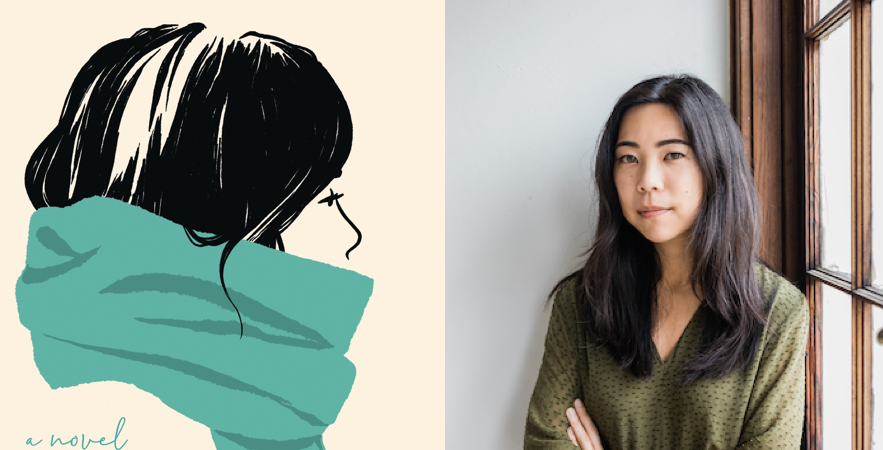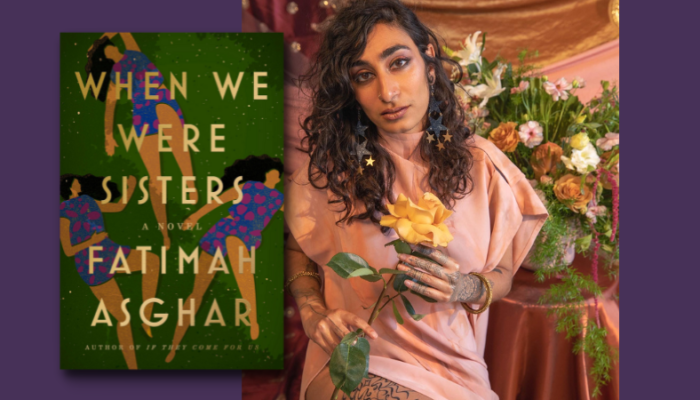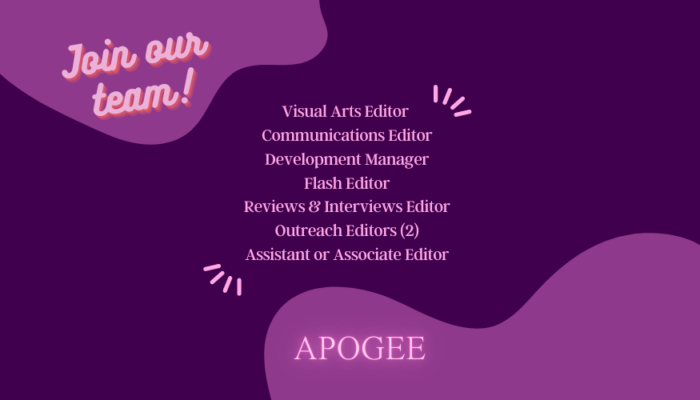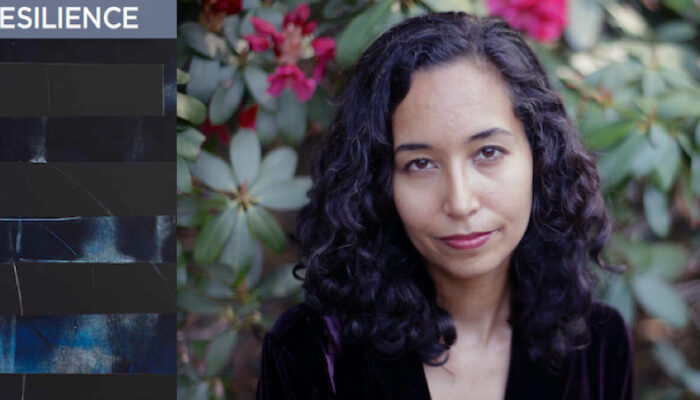An Interview with Alexandra Chang
“People think I’m smaller than I am,” reads the first sentence of Alexandra Chang’s evocative debut novel, Days of Distraction. It is a first line which elegantly encapsulates an underlying tension within Chang’s novel, a story that traverses Northern California, upstate New York, and Zhuhai, China and is set during the mid-2000’s. “People think I’m smaller than I am.” Chang’s narrator is a young woman who is often misperceived—underestimated or overlooked—in the bro-y tech sphere she occupies as one of the few female journalists of color, as well by as her own well-meaning, yet, at times, clueless, loved ones. Written in fragments, the reader pieces together how Chang’s protagonist is underestimated precisely because she is a woman, a person of color, an immigrant. Days of Distraction follows an individual trying to figure out not only who she is—her family history, her career, if she truly loves the man she’s with or if he’s just a stranger—but who she wants to be. Equally, it is a portrait of how an individual is shaped by larger forces such as capitalism, gender, and culture.
I had the honor of speaking with Chang about her debut in mid-February. I sent her questions in advance, which she graciously responded to. At the end of March, the night before her book’s official release date, we spoke again—Except, at this point in time, a mere six weeks later, the state of the world had been ruptured by COVID-19. During this second conversation, we sent one another questions and responses over the course of one afternoon, which bled into the evening. Below, in two conversations, Chang addresses her process writing her debut—once labeled “snippet story” on her computer—and why literature matters to her during these apocalyptic times.
—Daphne Palasi Andreades
I. March 2020
Daphne Palasi Andreades: First of all, how are you and your loved ones doing?
Alexandra Chang: I’m doing okay! Most of my family is across the country from me, which is a bit distressing right now, but I’m relieved to say that they’re all doing okay as well.
DPA: Thank goodness. I’m so glad to hear that. Most of my family is here, in New York City, and many of them are healthcare workers, so I’m terrified. But they’re staying strong. It’s a difficult time for everyone, to say the very least, and I really feel for authors and friends who are publishing books at this moment. What have been some of the different thoughts and feelings running through your mind as Days of Distraction is set to publish tomorrow?
AC: Wow, please relay my gratitude to the healthcare workers in your family. The work they’re doing during this pandemic is truly amazing.
For the last few weeks, I’ve been really consumed by the news and the changing circumstances of the global crisis. I started to feel a bit numb to the publication of my book. The book felt very small considering everything that’s going on. But at the same time, it is meaningful to me—I spent several years on this novel, and had always hoped that it would reach its readers, offer them a sense of comfort and kinship. I do still hope for that. Then again, I also feel strange promoting a book right now. Part of me feels this need to apologize for talking about the book at all. And yet here I am talking about it… Anyway, as you can see, having lots of opposing feelings and thoughts. I try to remind myself that art and stories have been helpful to me during times of crisis in the past, so my hope is that books can be helpful now, however small a help.
DPA: Thank you for your honesty. I can only imagine those conflicting feelings you described. But, at the same time, putting your book—this work of art and labor of love that you created—out into the world is such a huge accomplishment, for you and your entire team. I hope you still celebrate! Do you plan to hold any virtual book events?
I love what you said about books offering comfort and kinship during times of crisis. This feels so true. Before the pandemic, I held this belief that art was a bourgeois pursuit that ultimately didn’t “help” anybody. Harsh, but it’s what I thought (especially with family members who work in healthcare). But during this crisis, my views have changed—I see that it’s storytelling and art, in the form of books, movies, TV, and even the stories we tell each other, that have been vital in nourishing people’s spirits, among other things. I think your wonderful debut achieves this, as well, in how you show a character who’s trying to make sense of this world and her place in it. Can you speak more about the role of art during times like these?
AC: Thanks for saying that! Even though it’s disappointing that people can’t gather in physical spaces to celebrate books, it’s been heartening to see how quickly the literary community has come together to put on so much great virtual programming. I was on a Zoom panel recently, and have a few Instagram and Zoom interviews/readings lined up. (There’s probably been a 10000% increase in the use of the word ‘zoom’ in the last month.) I’ve also attended a bunch of virtual events, and they’ve all been fun and interesting. I like how I can “go to” readings for authors I previously wouldn’t have been able to hear/see read live, unless they passed through town. That’s one nice aspect of this—seeing people get creative about the ways in which they share and celebrate writing.
As for art’s role during this time, I agree with what you’re saying. It can be nourishing. It can remind us of our humanity. It can be a welcome break from the deluge of day-to-day life. I’m far from believing that books will save the world or that writing and reading fiction is some form of activism. But literature matters to me because it has moved me, made me feel more alive, more in love, more awake to my surroundings… Those are experiences I don’t want to give up, as long as I’m alive.
II. February 2020
DPA: Your debut novel, Days of Distraction, examines so many pertinent issues: racism, in its explicit and insidious manifestations, gender inequality in the workplace, interracial relationships, and immigration. These topics resonated deeply with me as a woman and writer of color. What questions or concerns did you have in mind as you were writing your debut?
AC: I don’t tend to write with specific questions or concerns in mind, at least not consciously. I’m more driven by voice, images, scenes, sentences. The more I write, however, the more my concerns become apparent to me, and I can revise and refine with a better awareness of those. In writing this book, I found that a lot of the sections addressed the gaps, discrepancies, and similarities between how the narrator perceives herself and how she is perceived by others. It’s also very much about the instability of early adulthood, this time period when most of us are trying to figure out our place in the world and find a sense of self.
Since the narrator is an Asian American woman in her mid-20s, living and working in modern-day America (well 2012/2013, so the recent past), these questions around selfhood are intertwined with questions about technology, immigration, gender, race, and class. I was interested in depicting how these large, unwieldy forces manifest themselves in smaller, day-to-day experiences, and the effects they have on this woman’s relationships, her position in the world, and her sense of personal autonomy. The first paragraph I wrote has remained the first paragraph of the book through its many iterations. I think it’s because it set the tone for everything that followed, and still does.
DPA: What was your process writing this book? If you ever felt stuck, what helped you move past this feeling?
AC: I began writing this book about four years ago, in a document labeled “snippet story.” I didn’t originally think it would be a novel. It felt more like a place where I could collect short scenes, pieces of dialogue, sourced material, and musings. I was writing what came to mind and drew a lot from my own experiences. I wanted to keep it low-stakes. Looking back, that initial writing period was the most fun time of the process. Eventually I had a long document of these relatively unstructured, unordered fragments. That’s when I was like, “Oh no, what have I done?”
By then I had decided to turn it into a novel for my MFA thesis. I love deadlines—even if I’m stuck on a project, once that deadline is looming, I push myself to get it done. And whatever I end up with does not necessarily have to be great! That’s what the next deadline is for. (I learned this appreciation for deadlines from having worked as a journalist. Not to say that I never miss one, but I do find deadlines invigorating rather than paralyzing.) I started to give the novel more of a shape, organizing the pieces by place, and further developing a sense of movement. I cut nearly a third of the fragments, because they weren’t any good. (Some did eventually, after being reworked, make it back into the manuscript.) Then I started to fill in the gaps—and there were many, from story line to setting to character development.
I finished a (very rough) draft as my thesis. It was far from done, but it at least had a start, middle, and end. There were many more drafts to come; the ending totally changed at least three times. When I felt stuck in that process, I just went and did something else— read books, watched TV, hung out with my dog and cat, talked to somebody—and waited until I could get myself to write/revise again.
DPA: Fragments, or vignettes, are used to structure the narrative. This formal choice reminded me of other novels such as Anelise Chen’s So Many Olympic Exertions, and hybrid works like Maggie Nelson’s Bluets and Claudia Rankine’s Citizen. The use of fragments allowed for juxtaposition between sections, as well as weaving together seemingly disparate pieces of information. Why did this form feel right for the story?
AC: I love reading fragmented books. I love the juxtaposition you mention, how pieces are not connected in a neat or causal way. I love the white space, the break it gives my eyes, the suggestion of silence and of what it is missing. Lydia Davis writes about fragments: “Any interruption, either of our expectations or of the smooth surface of the work itself—either by breaking it off, confusing it, leaving it actually unfinished—foregrounds the work as artifact, as object, rather than as invisible purveyor of meaning, emotion, atmosphere. Constant interruption, fragmentation, also keeps returning the reader not only to the real world but also to a consciousness of his or her own mind at work.” I find a lot of pleasure in reading books like this; it can feel like a very personal reading experience.
I also like how the form can dramatize the fragmented, chaotic nature of thought and life. To me, it’s more authentic to my experience in the world. And it makes sense for a story about a young woman who is, uneasily, constructing a sense of self out of these disparate elements of her life and history. To be honest, I also found writing in fragments more enjoyable and manageable. Though later, the structuring and revising of this long fragmented work turned out to be difficult and at times, terrible. (Then again I’ve never written a novel any other way, so I imagine it’s hard no matter what.) Another thing to mention: the form calls attention to each section as its own entity, which can be unforgiving. A weak section stands out more than it would in a more conventional form. But it also feels more intimate, like you have direct access to the character. And I enjoyed working section by section, making some self-sufficient, like a piece of flash fiction, others more like a quickly jotted notes. It felt like a very malleable form.
DPA: The narrator shares several similarities to you: she’s worked as a writer for a tech company, moves from California to New York, and, as we learn in a surprising twist at the end of the novel, has your first name. This blurring of fiction and nonfiction reminded me of authors like Elena Ferrante and Rachel Cusk who write in the vein of autofiction. At Ocean Vuong’s book launch at the Strand for his debut novel, On Earth We’re Briefly Gorgeous, he said something that struck me when asked about the autobiographical elements in his novel: “I invite the reader’s gaze, and then reject it.” What are your thoughts on autofiction? Why use this genre in Days of Distraction?
AC: I added that moment, when the narrator has my name, in one of my last revisions. It was partly because I started to notice a few readers refer to the narrator as “Jing Jing,” which I felt weird about. It makes sense that somebody would latch onto this name, since that was the only one attached to the narrator, and it is used throughout the novel. But she explicitly says the name is used only by her family, and that she keeps it from others. It is also, in fact, what my family calls me, which is probably why I am ambivalent about readers calling the narrator by that name.
I am also ambivalent about autofiction, because I’m not always sure what people mean when they use the term. Authors have been writing fiction based off of their own lives for a long time. I am certainly doing that. I am inviting the reader to read the narrator as myself, and putting my first name into the book added to that. But I also call that into question. (The instance the name appears, for example, is presented as a question.) I don’t think I’m outright rejecting the reader’s gaze, but I want to insert a sense of distance and doubt between myself as the author, and the world of this book. I felt that distance myself in writing—I was several years out from the experiences the book is based on when I started writing. Similar with the fragments, I was interested in dramatizing the work as something constructed and stylized, as fiction.
DPA: So many scenes in the novel touch on race in a subtle, yet thought-provoking and nuanced way. There’s one particular scene that gave me pause: the managing editor at the tech company, a white, middle-aged man, where the narrator works makes a thoughtless, racist comment during a meeting. None of the reporters confront or challenge him in that moment, and out of shock and fear, the narrator also says nothing. A few pages later, we learn that one of her colleagues, an Indian American reporter, has lambasted the editor on Twitter, which goes viral. This scene challenged my view on what complacency and silence might look like, and not just who speaks up, but how. Why were you drawn to exploring racism and otherness in this novel, and what challenges did you face writing about these issues?
AC: That’s a good example of a fictionalized scene drawn from lived experience. The scene in the book never “really happened” as is, but it is inspired by several real events that I’ve witnessed in predominantly white professional and academic spaces. For me, it was important to write about racist instances like this without being didactic. I wanted to present different possible reactions and responses, and ask questions rather than give answers. I also didn’t want the narrator to be innocent in these moments.
In this scene, her silence is definitely out of fear, but also, out of self-interest. She gets defensive when the social media editor calls the room out on their silence. She attempts to make excuses for the offender. She also worries about the implications all of this might have for her getting a raise. Sure, these are understandable responses, but they are called into question by other characters who react differently. I wanted to capture the complex interior processing that takes place for this particular woman of color when faced with racism, while also making space for the reader to question everyone’s actions. These are nuanced and messy interactions, so it was important to me to explore that in the book.
DPA: One fascinating story arc includes the early twentieth-century, Chinese American doctor, Yamei Kin. Why did you feel compelled to include this little-known historical figure within the novel? What research went into this section?
AC: I always knew that I wanted to incorporate historical narratives and documents into the novel. I did research into Chinese American history, especially looking for primary sources, documents written by Chinese Americans. I did a lot of digging into the NYT’s TimesMachine, which lets you search through their archives back to 1851. As it often goes with research, most of the materials did not make it into the final book.
But when I found Yamei Kin, she stood out to me as a notable character. She had ties to upstate New York. She was married to a white man. It made sense that the narrator, at that stage in her life, would be interested in a woman who had largely been forgotten by history, but who, in her time, had lived an incredibly full and unique life. I also found this long and detailed biographical document compiled by an organization called Soyinfo Center, of what seems to be every possible public mention of Yamei Kin. And there are so many! I had never heard of Kin before writing this book and the more I read about her the more fascinated I became. I gave that sense of discovery and interest to the narrator, though her relationship to the material is more fraught.
DPA: What books influenced this work?
AC: Some of the books you mention earlier are ones that I admire and thought about while working on my book. I read Anelise Chen’s So Many Olympic Exertions while I was finishing my first draft. She incorporates so much sports writing throughout, which is great, and was helpful for me to see how another writer injected research into the fragmented form. Citizen was definitely on my mind, too. I love Ferrante’s Neapolitan novels and the Cusk trilogy. Though I’m not sure that there is a clear through line from those books to mine, I do think everything I’ve read and loved has influenced my novel in some way or another. Others to mention:
Why Did I Ever, Mary Robison
Pitch Dark and Speedboat, Renata Adler
Faces in the Crowd, Valeria Luiselli
The Lover, Marguerite Duras
Goodbye, Vitamin, Rachel Khong
Bone, Fae Mynne Ng
Man in the Holocene, Max Frisch
How Should a Person Be?, Sheila Heti
DPA: What advice has sustained or challenged your practice as an artist?
AC: Develop and nurture your personal relationship to the writing, separate from outside approval and success. Those markers—publication, positive reviews, attention from others, etc.—come and go. You can’t and shouldn’t depend on them to sustain you. I’m needing to remind myself of this these days, especially, as I’m finding the publishing aspects somewhat debilitating to my writing.
I also used to be self-conscious about not having a writing “ritual” or a clearly defined, repeatable process. I’m not the kind of person who writes longhand first, or who consistently writes between 7am and 10am, or even writes everyday. Then somebody told me, whatever you happen to do that gets you writing, that’s your process. It doesn’t have to be defined.
Alexandra Chang’s debut novel Days of Distraction is out March 31, 2020 from Ecco/HarperCollins. She’s from Northern California, and currently lives in Ithaca, NY with her husband, and their dog and cat.
Daphne Palasi Andreades is a writer from Queens, NY. Her fiction was awarded the Henfield Prize at Columbia University, a scholarship to the Bread Loaf Writers’ Conference, and other honors. She is at work on her short story collection and novel. Find her at daphnepalasiandreades.com.




